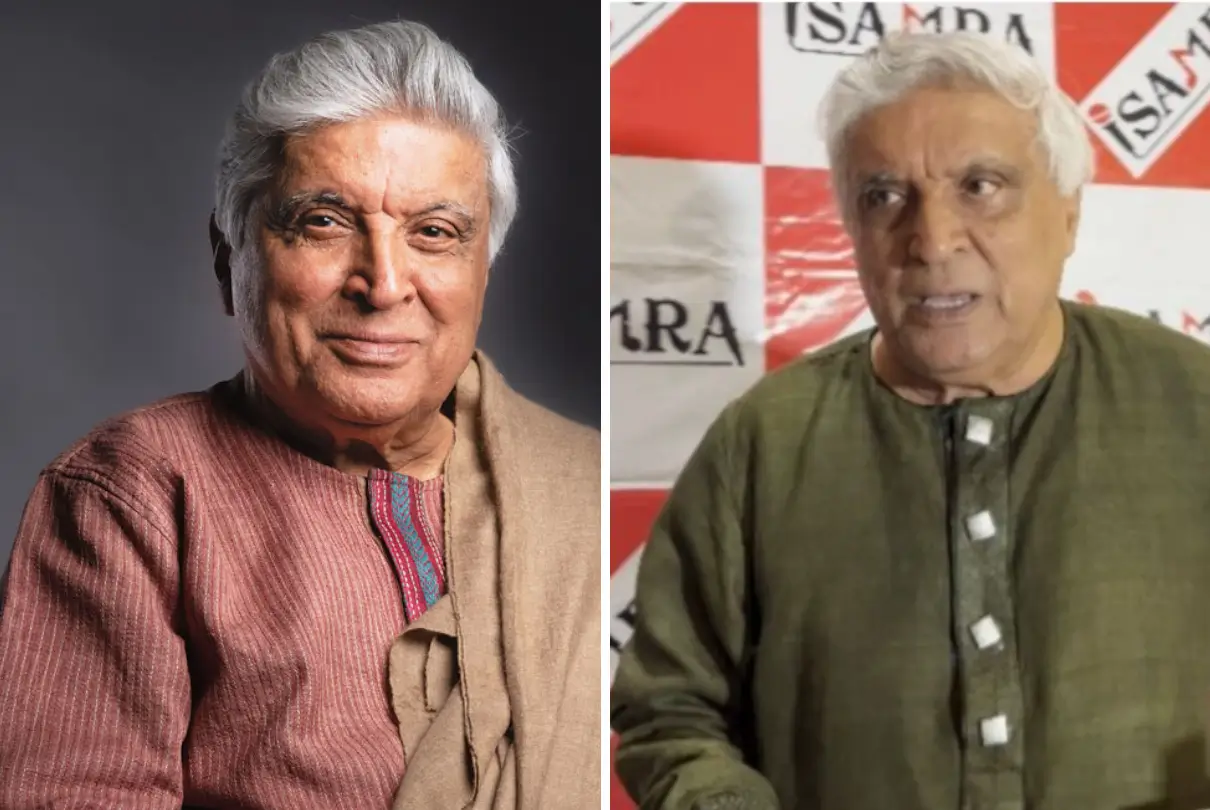Physical Address
304 North Cardinal St.
Dorchester Center, MA 02124

Veteran lyricist and screenwriter Javed Akhtar recently found himself in a heated exchange with a journalist at a public event in Mumbai. The confrontation occurred after the reporter asked Javed about his controversial tweet regarding the Kanwar Yatra. Known for his candid and often provocative opinions on social and political matters, Javed’s remarks about the Uttar Pradesh police’s directive had already stirred considerable debate. Also Read- Janhvi Kapoor Opened Up on Being Trolled for Being a Star Kid; Know What She Said
The controversy began when Javed took to X (formerly Twitter) to comment on the UP Police’s instructions for eateries along the Kanwar Yatra route. The directive required shops, restaurants, and vehicles to prominently display the names of their owners. Javed drew a controversial comparison, likening this move to the Nazi-era boycott of Jewish businesses. On July 18, he tweeted, “Muzaffarnagar UP police has given instructions that on the route of a particular religious procession in near future all the shops, restaurants, and even vehicles should show the name of the owner prominently and clearly. Why? In Nazi Germany, they used to make only a mark on particular shops and houses.”
Muzaffarnagar UP police has given instructions that on the route of a particular religious procession in near future all the shops restaurants n even vehicles should show the name of the owner prominently and clearly . Why ? . In Nazi Germany they used to make only a mark on…
— Javed Akhtar (@Javedakhtarjadu) July 18, 2024
On July 22, during an event in Mumbai, Javed was engaging with the media when a reporter questioned him about the tweet. This query seemed to hit a nerve, leading Javed to lose his temper. He responded angrily, emphasizing that he was not there to discuss his social media posts or any related controversies. In a video capturing the incident, Javed can be seen and heard saying, “Main yaha iss liye nahi aaya hoon,” indicating his refusal to entertain questions about the tweet before walking away from the press.
The UP Police’s directive was aimed at ensuring a smooth experience for Kanwariyas, who are pilgrims participating in the Kanwar Yatra. The instruction to display owner names on eateries and vehicles was purportedly to avoid confusion, as Kanwariyas tend to avoid certain types of food during their journey. The police stated that this measure was meant to be voluntary and aimed at preventing misunderstandings along the 240-km pilgrimage route. However, Javed’s comparison of this directive to the practices in Nazi Germany was seen by many as an extreme and inflammatory analogy, sparking a wave of backlash and debate.
Javed’s tweet and his subsequent clash with the reporter underscore the delicate balance between maintaining public order and respecting individual rights. The directive by the UP Police, while intended to facilitate the religious practices of the Kanwariyas, raised questions about its implications for business owners and the broader community. Javed’s provocative comparison brought these issues to the forefront, highlighting the ongoing tension in India between religious sensitivities and civil liberties.
The incident at the Mumbai event also sheds light on the challenges faced by public figures like Javed. His reaction to the reporter’s question reflects the scrutiny and pressure that accompany their statements, especially on sensitive topics. As a prominent cultural figure, Javed’s opinions carry significant weight, often sparking widespread discussions and sometimes controversy. His outspoken nature and willingness to address contentious issues make him a polarizing figure, celebrated by some and criticized by others. Also Read- Akshay Kumar Confirms ‘Khel Khel Mein’ Release Date! Says “Game is On”; Prepare for a Major Box Office Showdown This Independence Day! Read More to Get Full Details
Javed Akhtar’s recent altercation with a reporter over his Kanwar Yatra tweet highlights the complexities of navigating public discourse on sensitive issues. His provocative comments and the ensuing backlash illustrate the challenges of balancing personal views with public expectations. As debates about religious sensitivities and public policy continue, figures like Javed play a crucial role in shaping and challenging the narratives that influence societal attitudes and government actions.